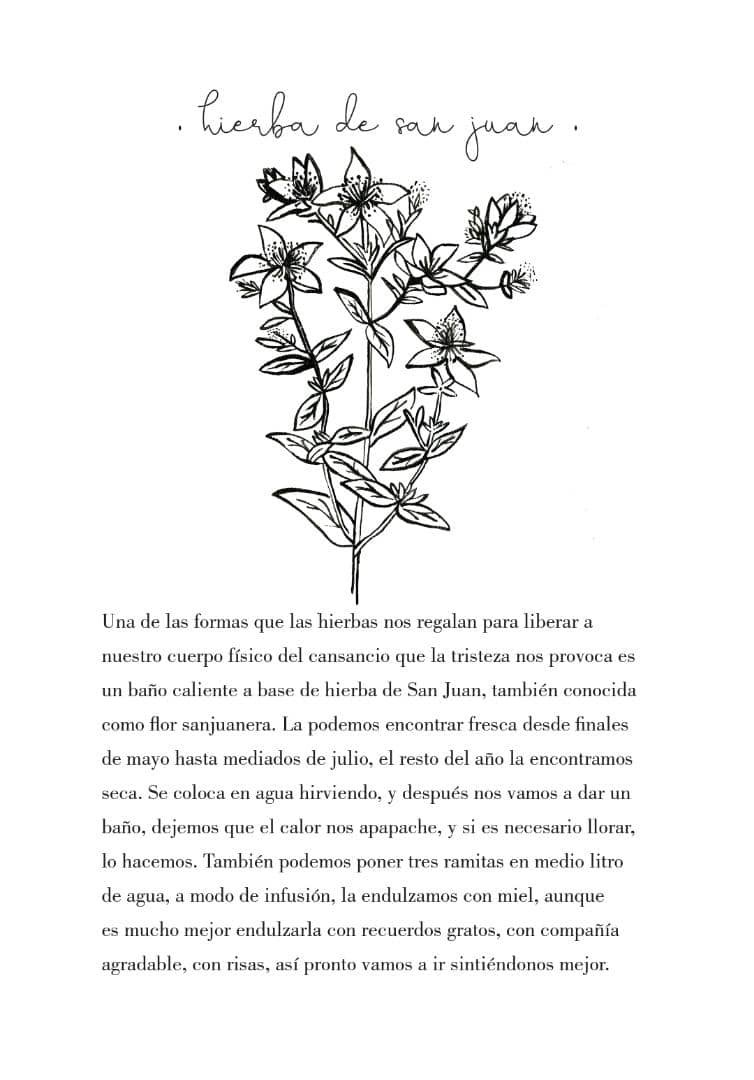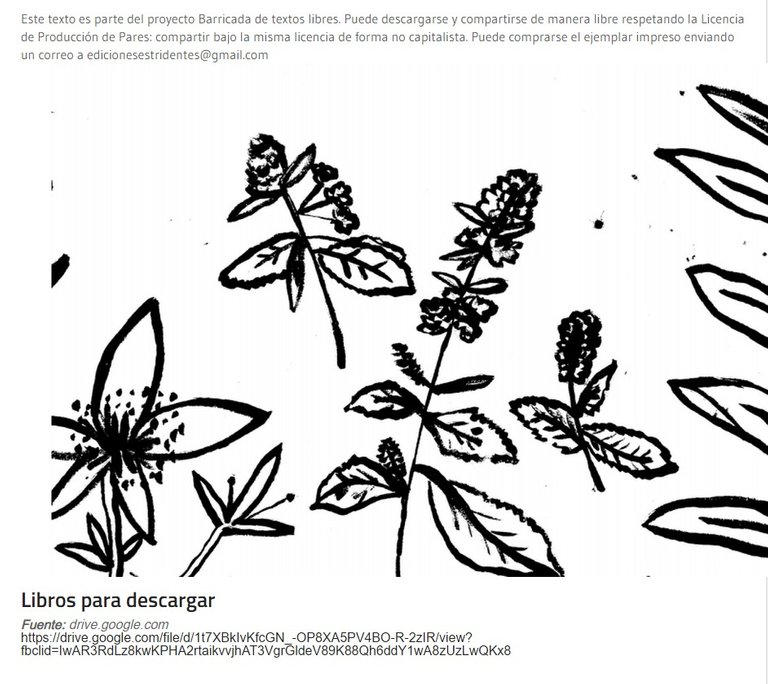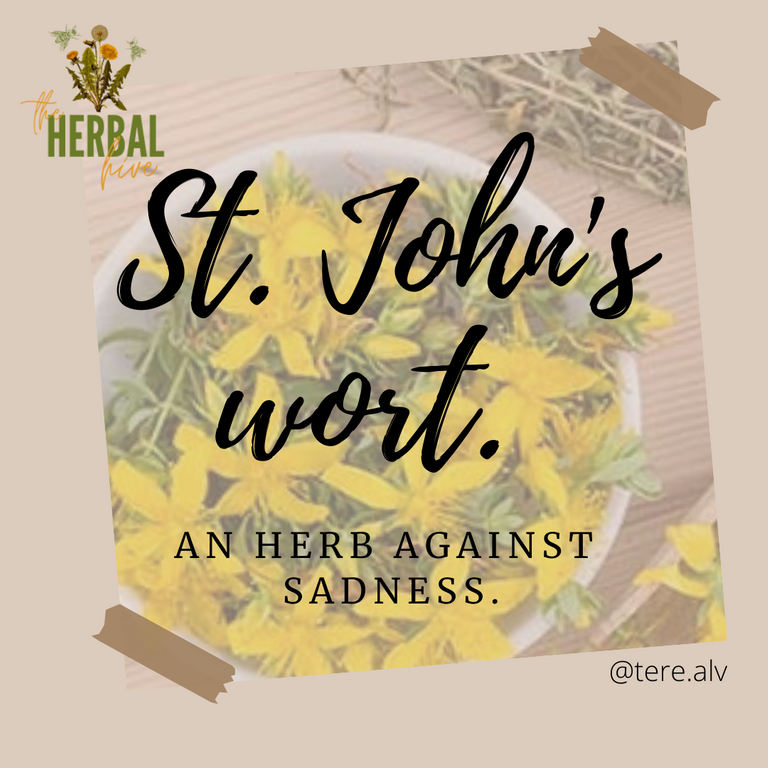

St. John's wort is an ancient plant commonly used to control depression, but over time studies have been conducted on this herb and today it is consumed to alleviate various symptoms of diseases and is considered one of the plants of herbomedicine.
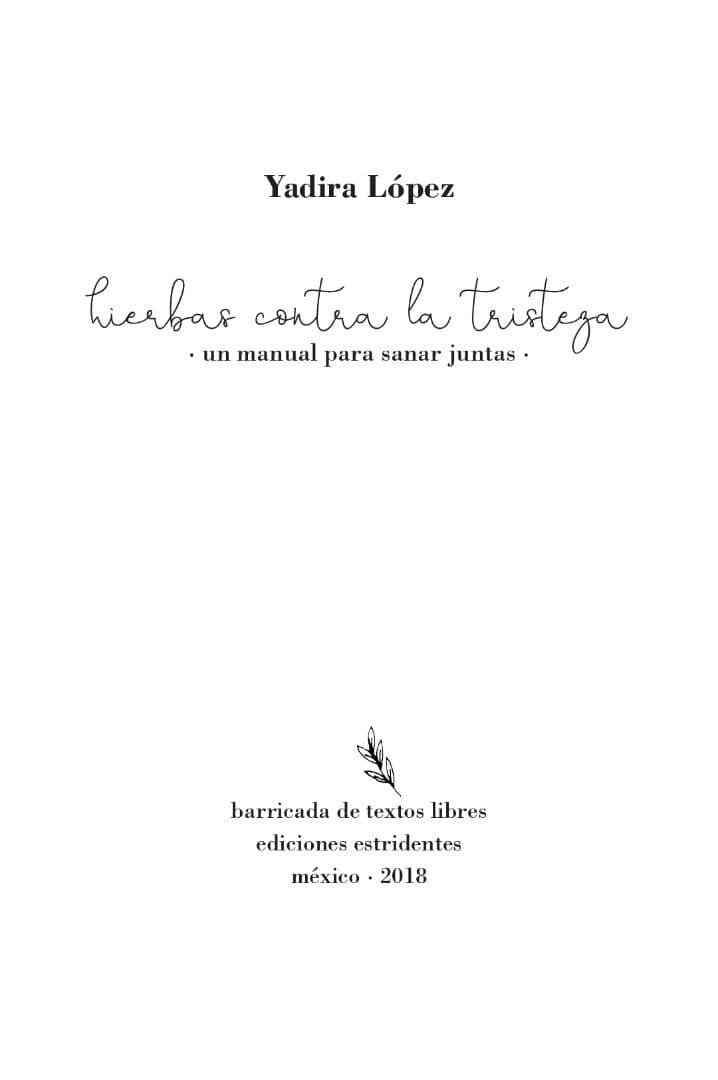

This is one of the recipe books with medicinal plants that is part of my digital bookshelf. It is a recipe guide about plants that help calm the nerves and mitigate depression. It is in Spanish and its name is Hierbas contra la tristeza.
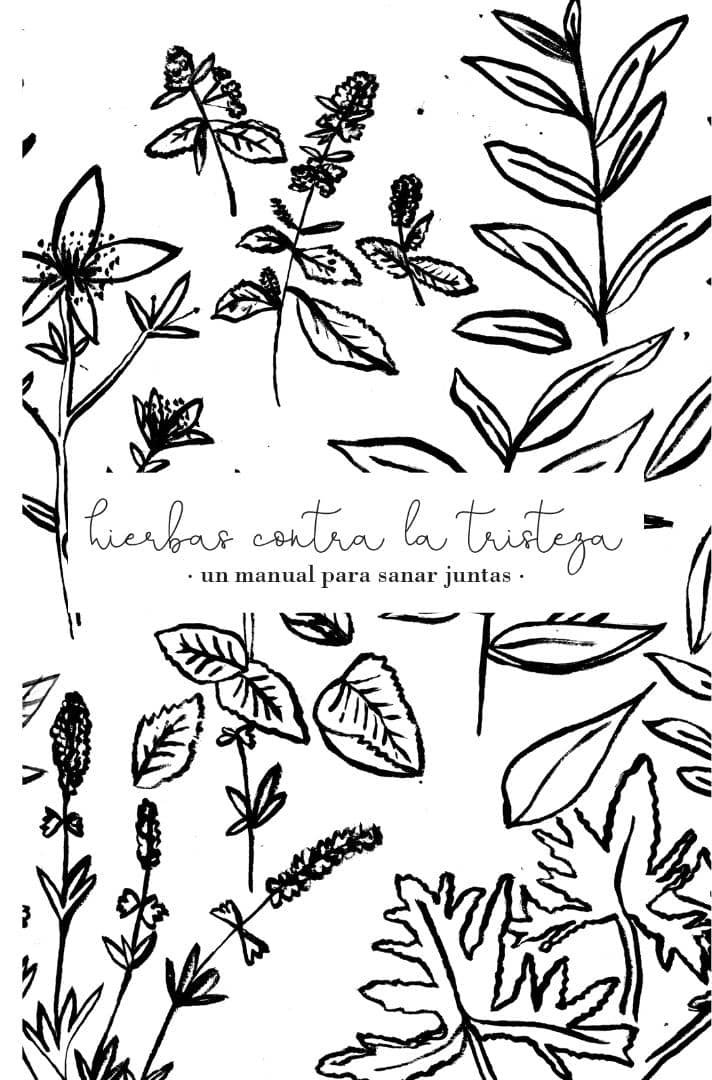

This wonderful guide shows us a description of flat, its properties, its characteristics and some recipes on how we can consume it.
in this manual for healing together, as the author says, one of the recipes that I like the most is this one:
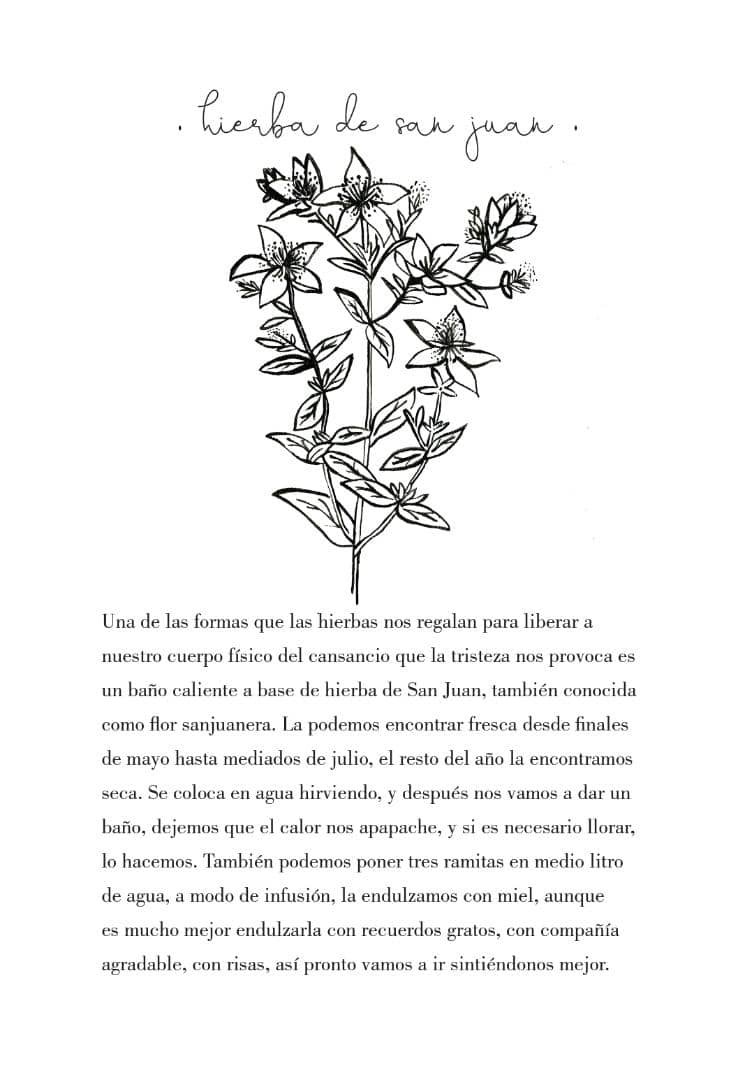
One of the ways that herbs give us to free our physical body from the tiredness that sadness causes is a hot bath with St. John's wort. We can find it fresh from late May to mid-July, the rest of the year we find it dried. It is placed in boiling water, and then we go to take a bath, let the color appease us, and if it is necessary to cry, we do it. We can also put three sprigs in half a liter of water, as an infusion, we sweeten it with honey, although it is much better to sweeten it with pleasant memories, with pleasant company, with laughter, so soon we will be getting better.

This book is by Yadira Lopez, it was published in Mexico in 2018, the digital edition that I have is from the publisher barricada de textos libres ediciones estridentes.

Personally I have not yet tried St. John's wort, but in my family on my father's side
I have not yet tried St. John's wort, but in my family on my father's side some relatives suffer from altered nerves, my great aunt Adela used to take infusions of St. John's wort before going to sleep, so she could relax and wake up much better when she had these crises of altered nerves. Personally, when I had episodes of anxiety, I have taken an infusion of Valerian, a plant I have in my garden that produces similar effects to St. John's wort. In Venezuela, where I live, I have seen it in the sales of dried herbs. I have not seen it fresh.
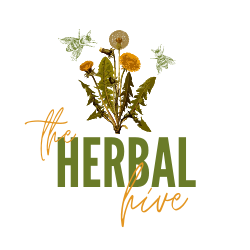

St. John's wort is used against anxiety, depression and to treat insomnia, nervousness, irritability, anxiety and mild depression.
Also for Menopause, it should be consumed as an infusion. In headaches, for those who suffer from migraine, migraine or headache, you can use St. John's wort as a fantastic natural ally that relieves pain and promotes a marked improvement.
In Gastritis, indigestion, heartburn, taken in infusion is wonderful to ingest after each meal.
For varicose veins it can be used externally or topically, since both options improve circulation and reduce varicose veins. It can also be applied in hot plasters as soothing and healing. Burns can also be relieved with St. John's wort; infusions prepared with this herb should have a slightly cold temperature to relieve burning or pain, usually applied with clean compresses or gauze. St. John's wort is recommended for those who wish to quit smoking, as it calms anxiety, nervousness and tension caused by nicotine addiction.
It has also been used to relieve sciatica pain, it will be necessary to use the essential oil of herb in the affected place, so you can massage and heal the pain. Back pains can also be cured with the herb. It has been used to eliminate or reduce joint or muscle pain, thanks to its analgesic and anti-inflammatory effects.

Forms of use: Hypericum or St. John's wort, has two uses that apply in different situations. Internally it is usually consumed as an infusion. To do this, add a tablespoon of dried flowers in 200 ml of boiling water, then cover the pot or cup and let stand for 5 minutes, finally, strain the mixture and drink as it cools. The external use of hypericum is usually done with oils or using the prepared infusion. In both cases it is applied locally with a gentle massage, compresses or gauze that are impregnated with the infusion.
Contraindications: Although hypericum has many beneficial properties for the body, it is important to know that its consumption during breastfeeding or pregnancy, often affects the baby's health. Also, consuming hypericum as an antidepressant may cause some side reactions when mixed with other pills.
Hypericum interacts with adverse effects among other medications for anxiety, some medications used in case of cancer, can interact with narcotics such as opioids and any medicine that is metabolized at the liver level, so if you take medications you should consult with your doctor.
Medicinal plants should always be used with the supervision of a medical specialist.
Source of information: https://ecocosas.com/

I hope this information is useful and that you leave your comments on the use of this wonderful herb. Thank you for visiting my blog.

The translation was done with deepl.com.
Images edited in Canva.
Post of my authorship 2021.




